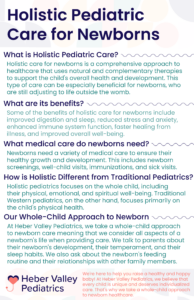There’s nothing like a surprise stomach bug to derail the week. One minute your child is happily heading to school, and the next, they’re pale, nauseated, and curled up on the couch. In Heber City and across Wasatch County, where kids stay busy with sports, school, and outdoor adventures, stomach bugs can spread faster than expected. That’s why families turn to Heber Valley Pediatrics for trusted pediatric care in Heber—not just to treat the symptoms, but to help prevent community outbreaks and get kids back on their feet quickly and safely.
In Utah, where family-centered living is the norm and schools are cornerstones of the community, avoiding widespread illness is a team effort. And while no one enjoys cleaning up after a queasy kid, understanding how stomach bugs work—and what your pediatrician can do—can make a world of difference.

The Basics: What Is a Stomach Bug, Anyway?
The most common culprit behind the dreaded “stomach flu” is norovirus—a highly contagious virus that causes sudden vomiting and diarrhea. According to the Centers for Disease Control and Prevention (CDC), norovirus leads to about 21 million illnesses each year in the U.S., many of them linked to schools, daycares, and family homes.
Symptoms usually begin 12–48 hours after exposure and may include:
- Nausea and vomiting
- Diarrhea
- Low-grade fever
- Stomach cramps
- Headache and fatigue
For most children, these symptoms are short-lived. But in some cases—especially if vomiting or diarrhea leads to dehydration—medical care becomes essential. That’s where trusted pediatric care in Heber Valley makes a difference. They don’t just patch things up—they support full recovery and prevent future spread.
Why Is Norovirus So Contagious?
Norovirus is persistent. The National Institutes of Health reports that it only takes about 18 viral particles to infect someone, and those particles can linger on surfaces for days. Children are especially vulnerable because of frequent hand-to-mouth behaviors and shared classroom supplies.
The virus spreads through:
- Person-to-person contact
- Contaminated food and drink
- Touching infected surfaces, then touching your mouth
Classrooms, cafeterias, and even bus handles become hotspots when hygiene breaks down. That’s why public health experts—and your Heber Valley medical clinic—emphasize simple, repeatable habits that reduce exposure.
Book AppointmentHow to Prevent the Spread at School and Home
Preventing a stomach bug isn’t about being perfect—it’s about building strong routines. Here’s what families and schools can do:
Teach Real Handwashing
Scrubbing with soap for 20+ seconds is essential. Sanitizer won’t kill norovirus. Make handwashing a routine after recess, bathroom breaks, and before meals.
Hydrate Often, Even When Kids Feel Fine
Hydration helps immune systems flush out viruses faster. Encourage water breaks and limit sugary drinks.
Keep Sick Kids Home
According to the Utah Department of Health, students should stay home for at least 48 hours after their last symptoms to reduce transmission.
Disinfect Frequently-Touched Surfaces
Door handles, light switches, counters, and keyboards should be disinfected daily—especially after someone has been sick.
Avoid Sharing Food or Drinks
Even if it’s just a sip or a cookie bite—sharing spreads germs fast. Teach kids to use their own water bottles and utensils.
When questions arise, a call to your nearby Heber valley clinic Heber City UT can clarify symptoms, timelines, and next steps. Local providers understand regional patterns of illness and how to act fast when outbreaks hit.
When Should You Visit a Pediatrician?
Many stomach bugs resolve in 24–72 hours—but there are times when professional care is a must. Seek out pediatric care in Heber if your child:
- Can’t keep fluids down
- Shows signs of dehydration (dry mouth, no tears, fewer wet diapers or trips to the bathroom)
- Is unusually drowsy or irritable
- Has diarrhea or vomiting that lasts more than three days
- Has a high fever over 102°F
- Has blood in stool or vomit
Pediatricians can help with rehydration plans, recommend safe foods, and screen for more serious infections. In some cases, they’ll check for bacterial causes or refer you for additional lab tests.
Heber Valley Pediatrics: Compassionate, Convenient, Local
One of the reasons families choose Heber Valley Pediatrics is because they combine clinical excellence with personal connection. With same-day appointments, flexible scheduling, and a warm, kid-friendly office, the team makes pediatric care feel simple and stress-free.
If you’re looking for a provider who listens closely, explains clearly, and knows your community inside and out, you’ll appreciate working with a Heber female pediatrician who’s earned the trust of local families. Parents say it feels more like visiting a friend who happens to be a highly trained medical expert.
This clinic that offers walk-ins understands that not every stomach bug gives 48 hours’ notice. Life happens—and your child’s care should be just as responsive.
The Role of Heber Valley Clinics in Community Health
This isn’t just about treating individual illnesses. Your Heber Valley medical clinic is part of a broader effort to keep Wasatch County families thriving. That includes:
- Helping schools understand symptom timelines and safe return policies
- Supporting caregivers with home-care checklists and hydration plans
- Offering guidance on when to seek ER care versus clinic visits
- Educating families on immunity, nutrition, and hygiene routines
By keeping children healthy, focused, and active in their education, clinics also help support teachers, reduce school absences, and limit the burden on working parents.
Early Intervention Is Better Than Recovery Delays
When kids get sick, it’s easy to say, “Let’s give it one more day.” But early pediatric support can prevent unnecessary suffering, complications, and even hospitalizations. Your local clinic can help you track symptoms, rehydrate safely, and make informed decisions—all without navigating urgent care waitlists or ER costs.
That’s why more families are turning to pediatric care in Heber for the kind of personalized, practical care that keeps everyone moving forward.
Healthy Habits for Heber Kids
Whether your child is gearing up for a spelling test or basketball practice, good health starts with prevention. Clean hands, good hydration, and fast action when symptoms hit can make all the difference. Combine that with a pediatric team that truly knows your family—and your community—and you’re setting your child up for success.
Pediatric care in Heber isn’t just about sick visits. It’s about building lifelong wellness habits, reducing school absences, and protecting entire classrooms from unnecessary spread.
Ready to book a visit or speak with someone about your child’s symptoms? Call or text us at (435) 657-0101 or visit us at 345 E Gateway Drive, #150 in Heber City, UT. You can also use our online scheduling system to reserve your child’s appointment in advance.
The Heber Valley Pediatrics team is proud to serve the families of Heber City, Midway, Charleston, and surrounding areas with compassion, clarity, and care that grows with your child.





